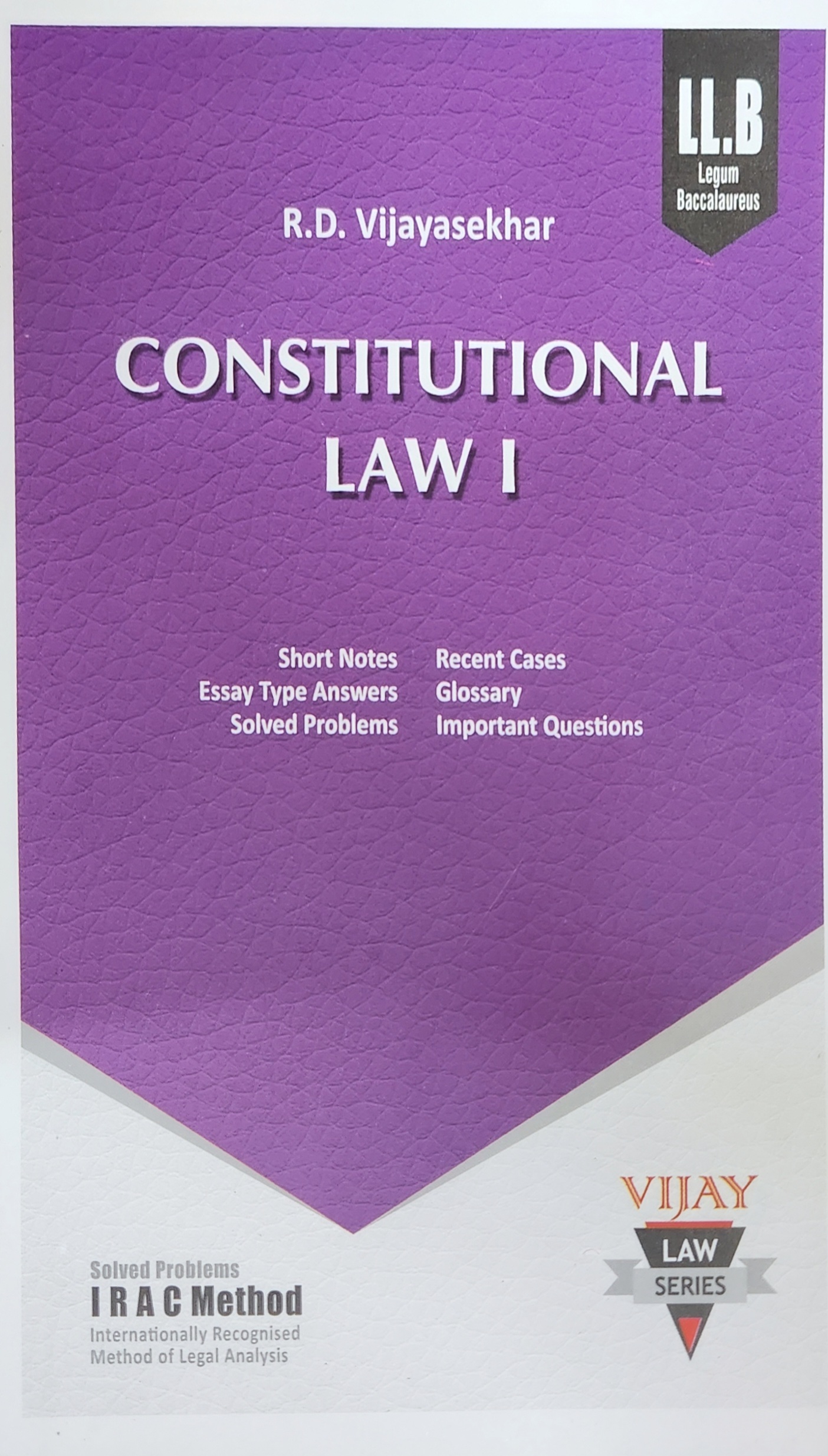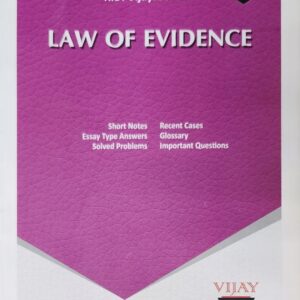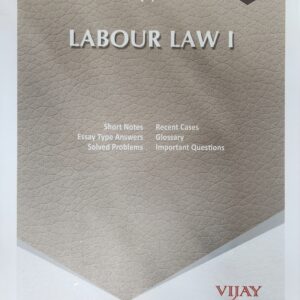CONSITUTIONAL LAW – I | VIJAY LAW SERIES
Description
Short Notes, Essay Type Answers, Solved Problems, Recent Cases, Glossary, Important Questions
Constitutional law is the body of law which defines the relationship of different entities within a state, namely, the executive, the legislature, and the judiciary. It lays down the framework defining fundamental political principles, establishes the structure, procedures, powers, and duties of government institutions, and sets out fundamental rights, directive principles, and the duties of citizens.
A good understanding of the Constitution and the law, which has developed through constitutional amendments, judicial decisions, constitutional practice and conventions is, therefore, absolutely necessary for a student of law.
The area of judicial review is an important subject within Constitutional Law. The Supreme Court has played a crucial role in interpreting the Constitution. Study of Constitutional Law focuses heavily on Supreme Court rulings. Constitutional Law-l covers the Articles up to 51-A of the Constitution.
The student of law must also know the genesis, nature and special features and be aware of the social, political and economic influence on the Constitution. A student must, learn how various interpretations of the constitution are possible in a particular situation. Such a critical approach is necessary requirement in the study of constitutional law.
……………………………………………………………………………..
Contents
Chapter 1 : General Features of Constitution of India
Chapter 2 : Citizenship, State and Justiciability of Rights
Chapter 3 : Fundamental Rights
Chapter 4 : Constitution and Fundamental Freedoms
Chapter 5 : Constitutional Remedies
Chapter 6 : Directive Principles of State Policy
Chapter 7 : Fundamental Duties
Chapter 8 : Landmark Judgments
Appendices
Short Notes Index
Short Notes
Dictionary
Frequently Asked Questions
Model Question paper
Reference Books
Subject Index





Reviews
There are no reviews yet.